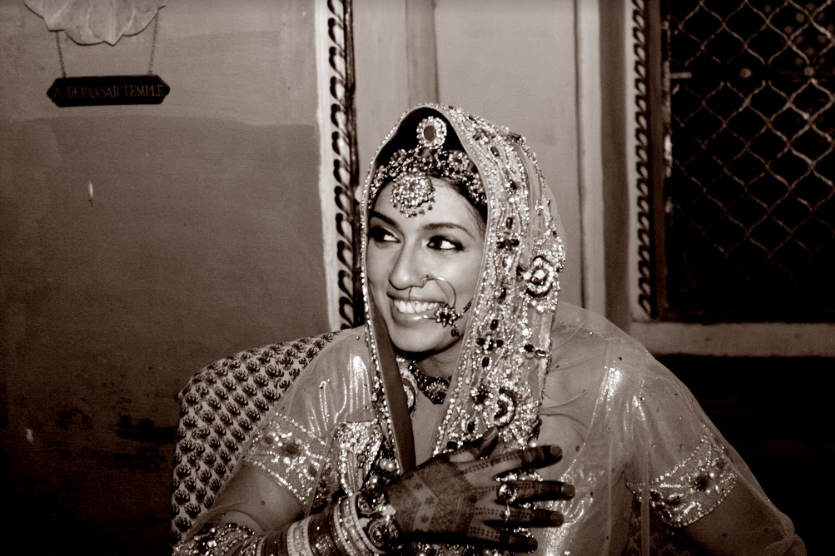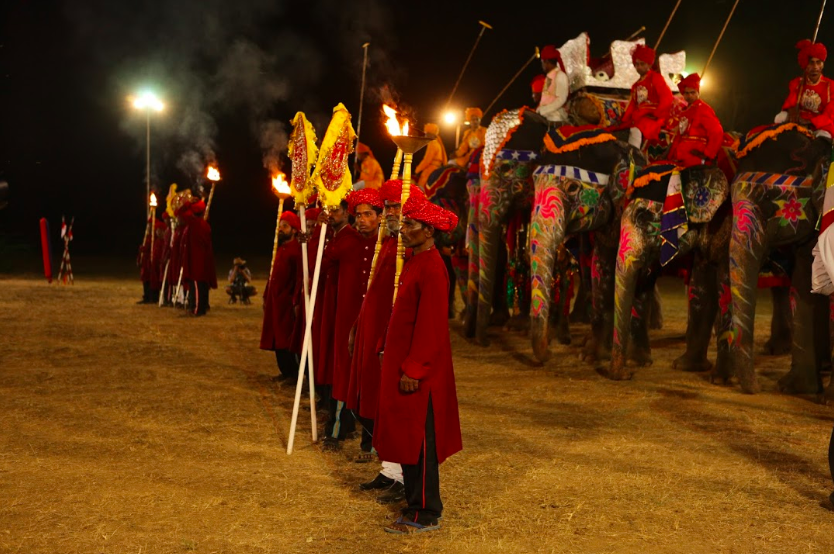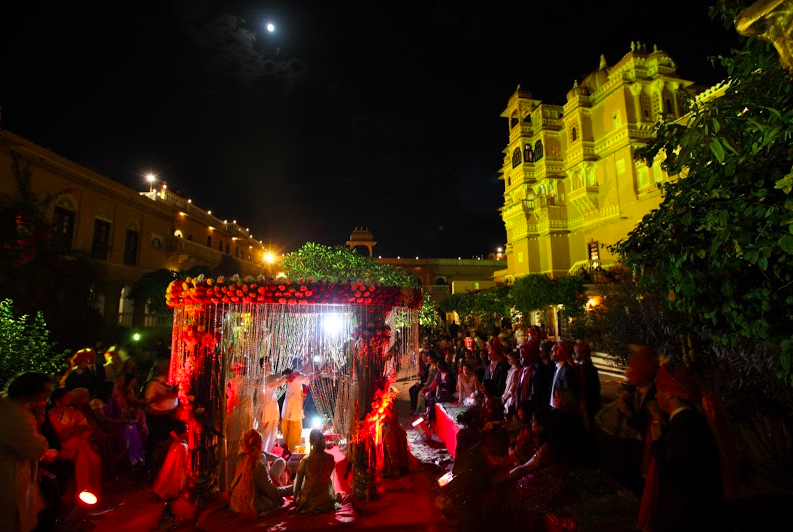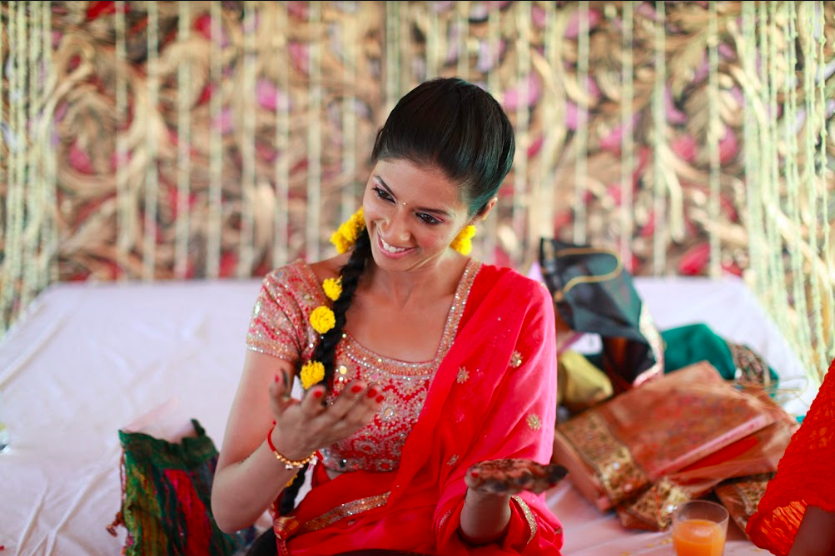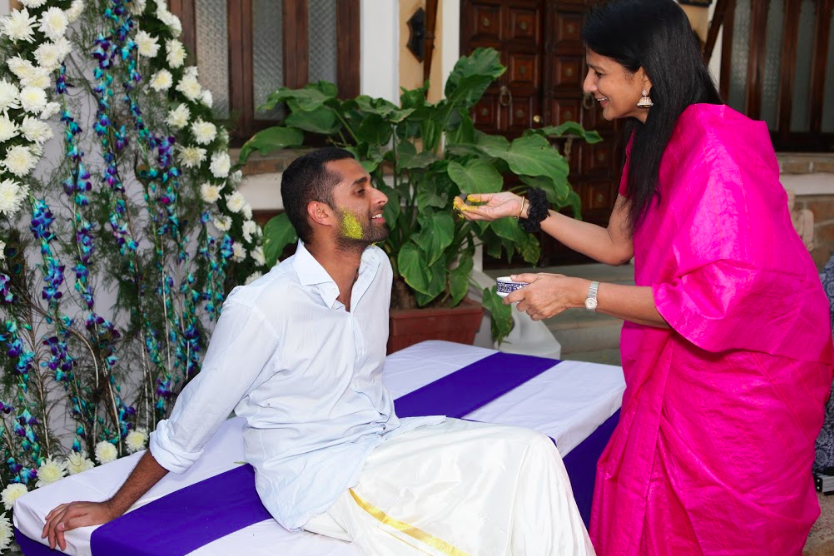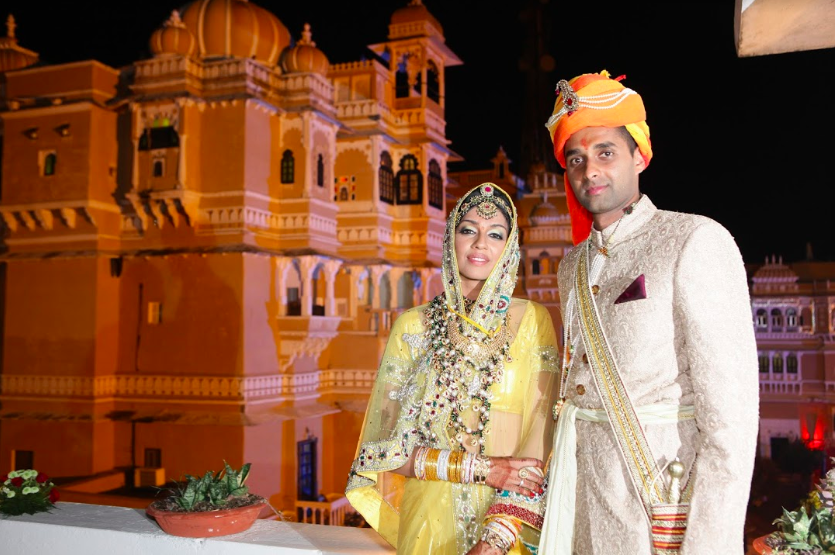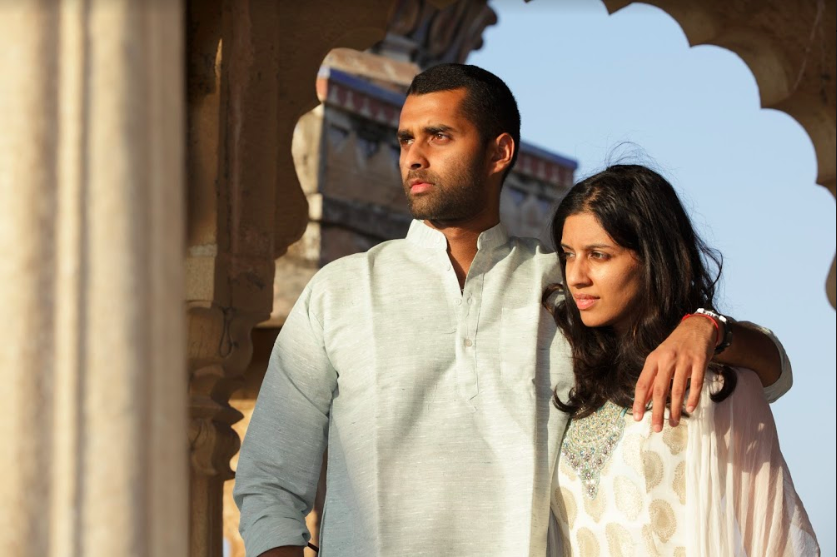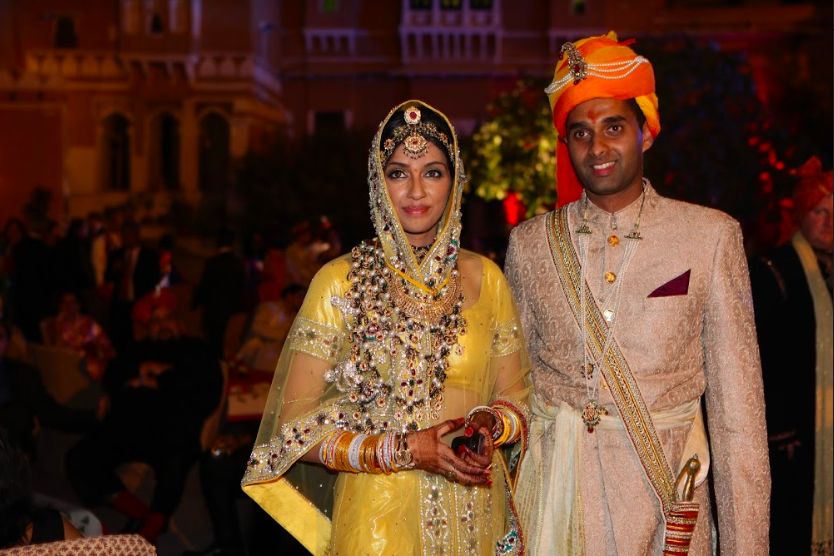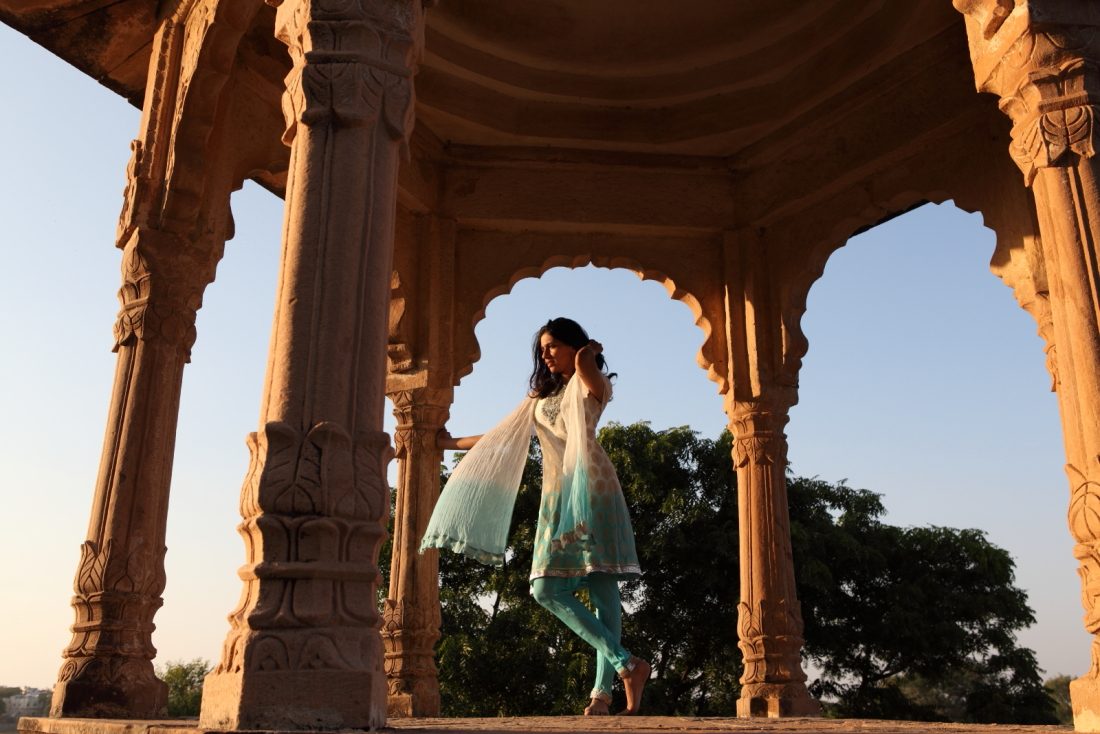Despite her noble Rajasthani roots and his business blue blood Sri Lankan lineage, Dr Anjhula Mya Singh Bais and Satish Selvanathan look to the simplest aspect of all for everlasting love: kindness and respect.
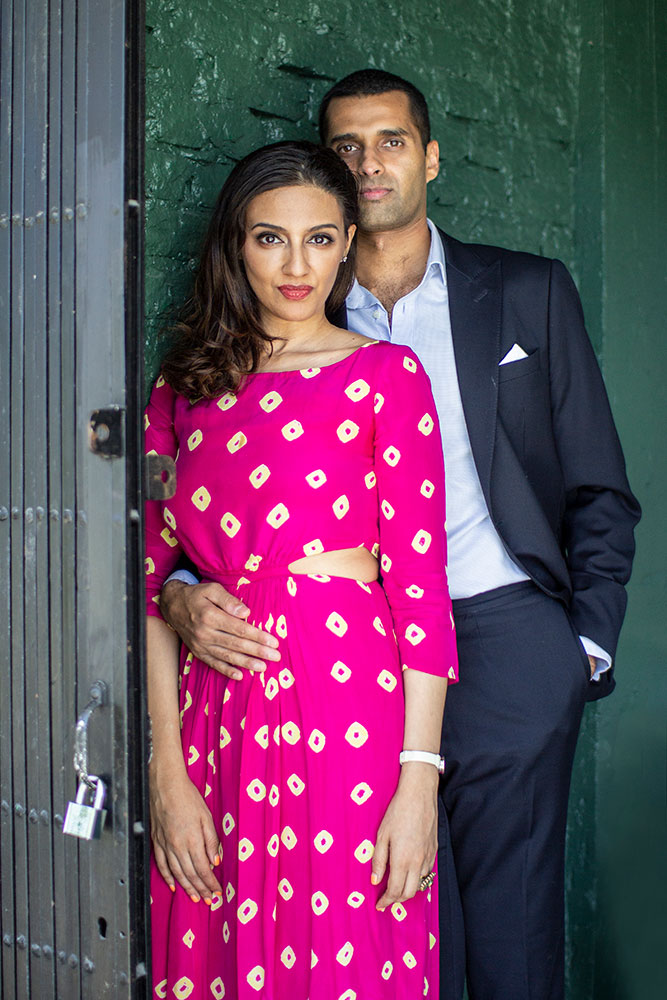
The first time Satish Selvanathan and Anjhula Singh Bais shook hands in London, sparks didn’t fly. Instead, there was a vibration that told Anjhula that it was no chance meeting.
What followed was the typical story of boy meets girl, boy having to leave to the big city of New York for school shortly after and girl deciding to follow suit. They fell in love across New York and London and, not one, but two beautiful weddings ensued in India and America. So far, we have the makings of a love story as old as time.
Except, theirs isn’t that of your everyday tale, because they aren’t your everyday couple.
Anjhula is the youngest daughter of aristocrat Thakur Birendra Bikram Singh Bais of Banswara, Rajasthan, on top of being an international psychologist specialising in trauma management. Satish is the son of a top business blue blood family in Sri Lanka, and today runs a turnaround company in Kuala Lumpur where they’re based, when he’s not training for ultra marathons and entering monastic states of silence with his Vipassana practices.
All the above isn’t even the most astounding parts of their story. Like every strong marriage, it is their partnership, and the deep respect for each other as more than just husband and wife it stems from, that bears the torch to their strength as a couple.
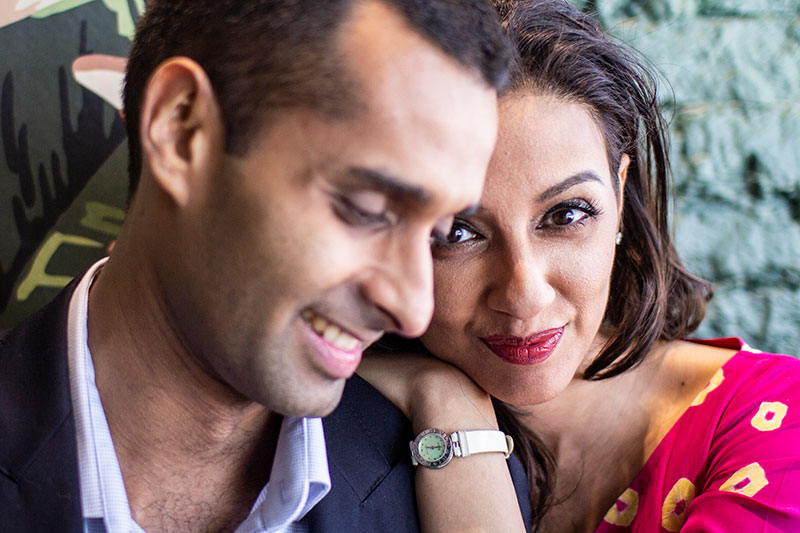
Of Greek dinners and panda bears
It all started on a Friday night.
“I had a very good Greek friend who, out of the blue, insisted I go for a dinner party,” Satish recalls of the night in 2006. “I’ve known this guy for five years and he’s never insisted so urgently that I be there for something.”
At the dinner party of over 30 Greeks, he met Anjhula and her friend, who were also forced to attend, setting them up as the only three people in the room who didn’t speak or understand a word of Greek. It was clear what their friend’s intention was.
“I felt like the panda bears in the zoo being forced to couple up just because we were both brown,” Anjhula jokes, the first hint to her scalding sarcasm that was the main reason their friends thought they would be well-matched for each other.
“Second reason is that we both swear a lot,” Satish quips.
A handshake on that first meeting sent deep vibrations through Anjhula, who was, even as a student, already in tune with her personal divinity. “The thought that hit me was, I wouldn’t be surprised if he turns out to be my husband some day,” she regales. “I just felt it.”
Unfortunately, Satish had decided that day he was going to leave soon for New York to go to school at Columbia University. After dating long distance for a few months, Anjhula, without qualm, moved her entire life there for him. As if fated, she was also accepted into the university, despite submitting her application weeks after the deadline.
“In life, you will meet one person who will challenge everything you thought about yourself and turn everything on its head,” Anjhula reflects.”For me, it’s him. Why would I move for a guy? He’s worth it. I’ve never regretted it.”
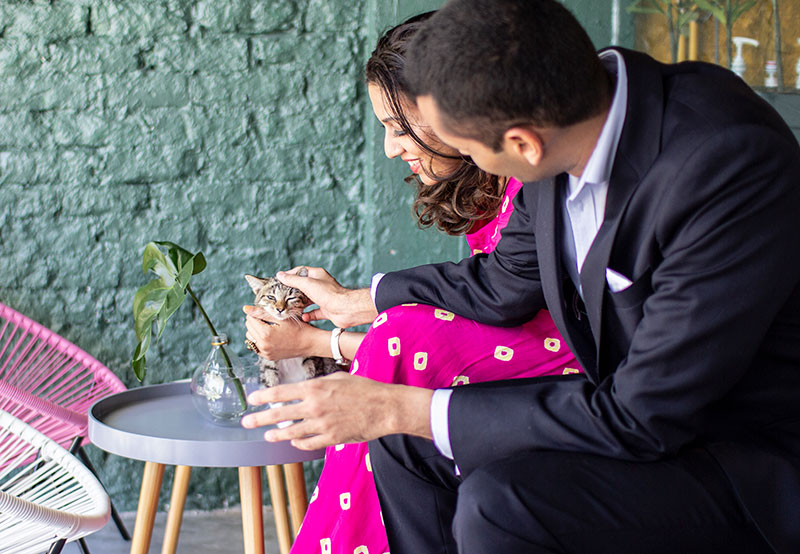
Elephants, feminism and beer by the curb
Moving continents and crossing oceans weren’t even the hardest part of their relationship. It was the wedding that would follow.
Anjhula sent out the news exactly a year before the date and started planning it remotely. Her first wish for a simple do with a small guestlist was met with objections.
Both their families demanded quite the opposite, resulting in a headline-making high profile royal extravaganza complete with elephant polo, Satish making his entrance on an elephant and guests flying in from all over the world.
“There were 227 guest, which is considered a small wedding by Indian standards,” Satish clarifies. “This wedding was really for everybody else.”
There were some parts in which they gave in, but others in which they stood their ground.
The couple greeted each guest personally at the palace doors, a practice that their elders were surprised at. Anjhula chose locally grown marigolds to help the local farmers instead of importing them in. She also rejected all gifts, despite being told she would be deemed a snob for not accepting them graciously as a newlywed would. She asked instead that cash and kind go to fundraising for the many causes in Africa and Sri Lanka that she and Satish are ambassadors for.
“I think our psyches are just wired differently,” she says. “Often, it’s such a spectacle, it’s supposed to be this luxurious free-for-all thing, which I think is very wasteful.”
(Swipe left to see more photos from Anjhula and Satish’s wedding in India)
Not even customary traditions got them to yield.
Where family often gets front-row seats, Anjhula arranged for the household staff of Satish who brought him up following the passing of his mother when he was 14, to take at the wedding instead. “You don’t earn that place because of blood, you earn that place because of your service,” she opines.
In the traditional Sanskrit ceremony where the groom leads his new bride seven times around a fire signifying seven lifetimes together, Satish asked that she led four rounds and he rounded up the last three.
“Inadvertently, ours was a feminist wedding way before it became a hashtag,” she proudly observes.
After scandalising almost every custom and upsetting almost every relative, the couple threw a second wedding in New York for themselves.
“It was calm, it was sensible,” Satish describes the affair at the humble centre where they practise Nicheren Buddhism. “What I would never forget is that after the wedding she was sitting outside on the curb with a beer in her white wedding dress. You cannot consume alcohol outside in New York, so she was drinking it from a brown paperbag.”
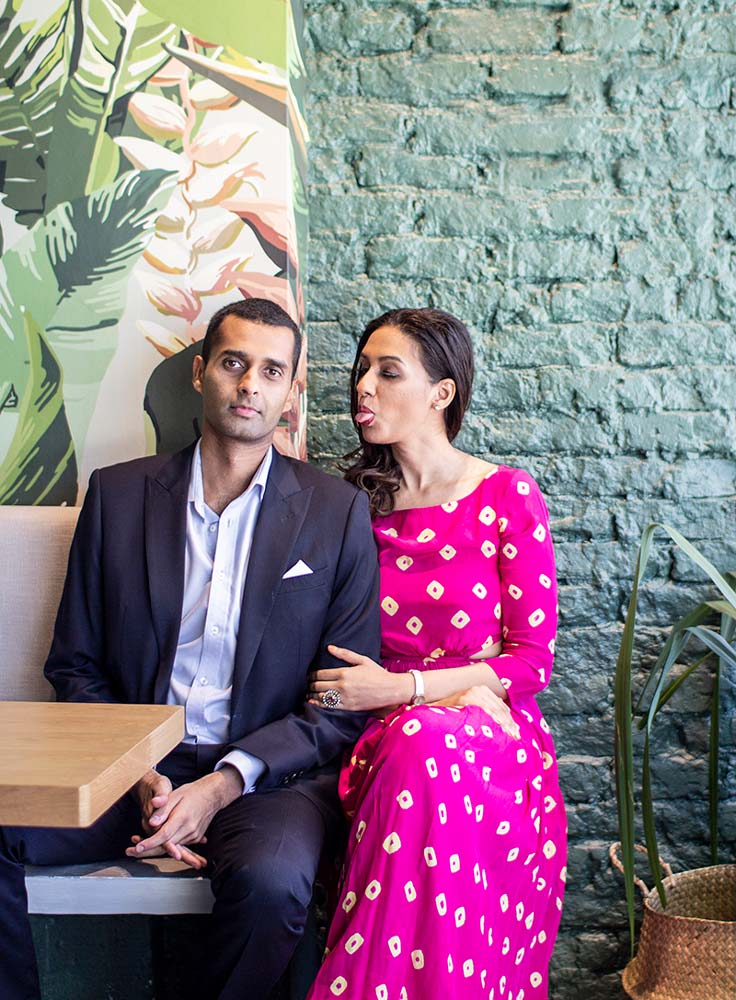
“I see her divinity”
Anjhula isn’t a morning person. Satish, on the other hand, is, often embracing the morning long before the sun rises or Anjhula stirs. When she finally does, with her hair in a bird’s nest and her disposition not the cheeriest yet, begins Satish’s favourite part of the day.
“The highlight of my day every single day, honestly, is when she stumbles out of bed, with the bird’s nest,” he says earnestly. “Every single day, I’m thrilled to see her movement. I like watching her move, with her hair in a mess, usually scowling because she’s not happy to be awake.”
They may have been married eight years, but it wasn’t always like this. In fact, they consider their first marriage dead and annihilated, marked by Satish’s “rebirth” following an awakening of his spirituality after his first call to Vipassana.
Now in their “second” marriage, they have a better understanding of themselves and each other.
“When I realise that I was not just physical skin, bones and blood, that there was something more to it and life, that helped me see the same in her. I see her divinity,” Satish explains. “I see her as an extension of something else. That helped bridge that respect, kindness and care.”
He believes kindness and respect is the basis to every successful relationship. “A lot of people say they love this person, but they’re not kind to that person. You’re nicer to the person you’re buying coffee from than your spouse.”

At the root of it all, is self-love because we are all interconnected.
“Romantic love is not the highest type of love,” Anjhula tells. “It’s a ripple effect. There’s no shortage of love, it’s infinite. It’s looking into the divinity in each person from your Grab driver to your barista. We’re all interconnected.”
She remembers the exact moment she was shown the proof of this. “In 2014, when we especially became connected and aware, it wasn’t anything Satish did for me. It was something he did for himself and, my goodness, am I the lucky recipient of it.”
We end our interview with Anjhula letting on that everyone can get to that level of connectivity they do, if we just silence the distractions of everyday life like social media.
“What we eat, what we think, what we do, we pollute our minds too much. It’s too dense so the energy can’t come through,” she tells.
As a psychologist, she often asks her patients whether they want a prescription or to heal. “If they want to be healed, I tell them to go off social media for two weeks and feel the difference.”
With that out of the way, pay attention to what you and your partner need.
“We do this Tibetan practise every morning where we just look into each other’s eyes for 30 seconds without saying a word,” she offers. “It’s a very intense thing – you’ll find how unnecessary words are.”
“If you do that with somebody, you will see their soul,” Satish finishes for her.
Watch the video from their royal wedding in Rajasthan below:
Photos: Gan Yew Chin and the personal archives of Anjhula Singh Bais of the images by Akash Das, Cimmaron Singh, Rahul Dutta
Video: The personal archives of Anjhula Singh Bais of videography by David Lee and Yaroslav Kofman










